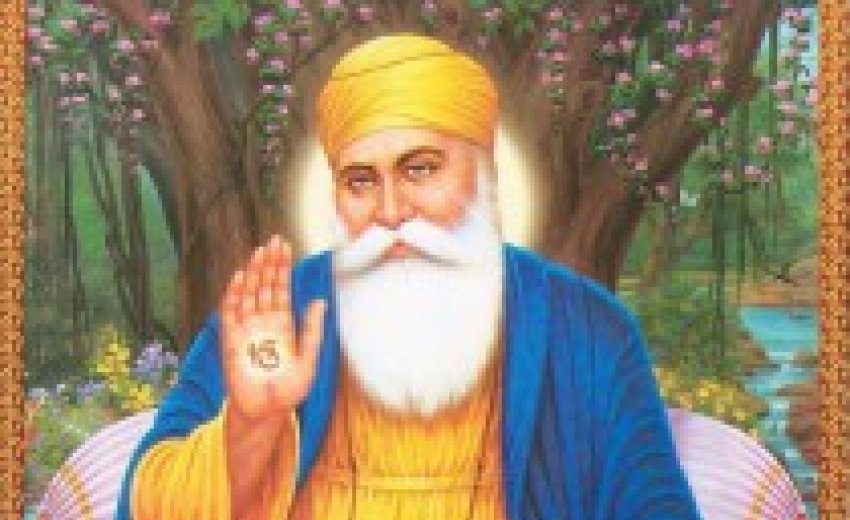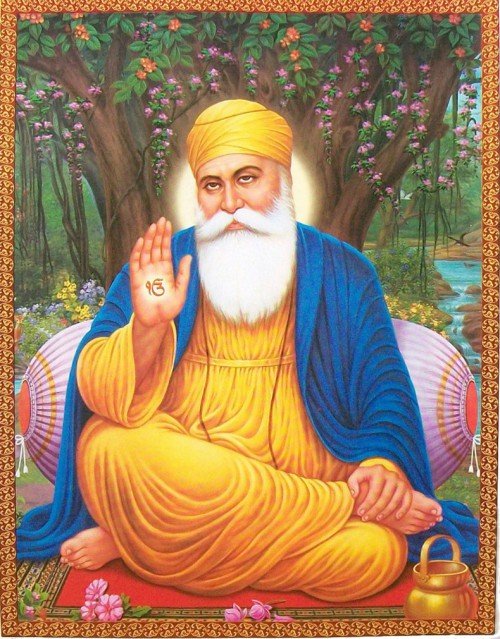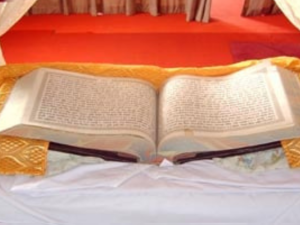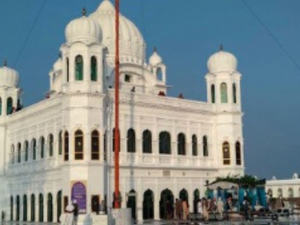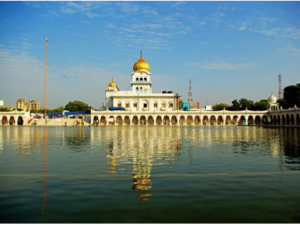|
Sikh Religion Sikhism is one of the world's youngest religions, which was founded just over 500 years ago. Despite being the youngest religion, it is the world's fifth largest religion with over 25 million followers, and it is growing at a fast pace. The community of the Sikh believers is known as Khalsa Panth. Sikhism teaches that all human beings are equal and can realize the 'divinity' within them through devotion to God, truthful living, and service to humanity. Guru Nanak Dev Ji (1469-1539), was the founder of Sikhism. He was born to Kalu Mehta and Mata Tripta, in a Hindu family in the village of Talwandi, now called Nankana Sahib, near Lahore.
The langar system of sharing food fosters a sense of selfless service to the Lord and creates harmony and good-will among the community members. The food is cooked and served by all members of the community, irrespective of one's status. This is a great cohesive force among the Sikh followers and a means to overcome to egoism and achieve unity. The Sikh religion introduced changes like abolition of idol worship and following of rituals by the Hindus. Sikh religion believes that there is only 'One God' who flows through the entire Universe, and hence Sikhism is a monotheistic religion. The ten Sikh Gurus are: Guru Nanak Dev (founder of Sikhism); Guru Angad; Guru Amar Das; Guru Ram Das; Guru Arjan Dev; Guru Har Gobind; Guru Har Rai; Guru Har Krishan; Guru Tegh Bahadur; Guru Gobind Singh; and the eleventh Guru is the eternal 'Guru Granth Sahib'. It essentially means that nothing can be altered or added to the affirmed and declared 'Sri Guru Granth' and hence the purity of the sacred text is maintained for the future generations to come. No living human Guru is permitted in Sikh religion, which thus eliminates the possibility of any imposter or a fake person to start a new Panth or another branch of religion in the future. The tenth Sikh Guru, Sri Gobind Singh affirmed the sacred text of 'Sri Guru Granth Sahib' as his successor and as the final Guru, as after him there was no further lineage of Gurus. ---- Sri 'Guru Granth Sahib' is the central religious text of Sikhism and is considered by the Sikhs to be the final, Sovereign Guru after the lineage of 10 Sikh Gurus. It is a collection of teachings and writings by Guru Nanak Dev and other lineage of Sikh Gurus, and it includes the sayings of other Sikh, Hindu and Muslim saints. Granthis in the Gurudwara are equivalent of priests, who have studied the Sikh scriptures extensively, and they recite the Guru Granth Sahib. History tells us that there have been several massacres and wars between different communities, because of different religions. There has been massive bloodshed caused by the ruling emperors of those times to try to convert minority religions. There was an extremely important event in Sikh history that had a profound impact as a unifying force, and emergence of Sikh religion as a strong community. Dr. Hari Ram Gupta, an eminent Sikh historian, writes in the 'History of the Sikhs': "Emperor Aurangzeb was a barbaric ruler of the Mughal Dynasty who came to power in India in 1658 and ruled for 49 years until his death in 1707. When he came to power in 1658, he forcibly converted millions of Hindus and Sikhs to Islam. If anyone refused, then he or she was mercilessly killed. Great atrocities were committed to wipe out the 'Hindu' and 'Sikh' population." "In the year 1675, 'Guru Tegh Bahadur' and his loyal devotees were brought to Delhi and asked to convert to Islam or else face death.The Guru was asked to give up his faith and religion. Under Aurangzeb's orders, Guru Tegh Bahadur and his close followers were imprisoned in a cage and they were tortured to break their 'will power.' In order to terrorise Guru Tegh Bahadur into submission, one of his loyal devotees Bhai Mati Das was sawn alive, while another disciple Bhai Dyal Das was put in a cauldron filled with boiling oil and charred to death. A third disciple Bhai Sati Das was roasted alive before the Guru."
Guru Tegh Bahadur was then publicly beheaded in Delhi in 1675 on the orders of Mughal Emperor Aurangzeb for refusing to convert to Islam and resisting the forced conversions of Hindus in Kashmir to Islam. Gurudwara 'Sis Ganj Sahib' in Delhi now stands majestically, to mark the place of beheading of the Guru, and another Gurudwara by the name of 'Rakab Ganj Sahib' in Delhi, marks the place of cremation of the Guru's body. In modern times, we take it for granted to follow any religion of our choice - but in 1675, millions of people were denied this basic human right. There were forced conversions of religion, and millions of Hindus and Sikhs were killed for refusing to change their religion. The three pillars of Sikh life are Naam Japna (Remember the One at all times), Kirat Karni (earn your living honestly) and Vand Chakna (sharing with others). In Sikhi, there are five "thieves" or five major weaknesses of human beings. These are known as "thieves" because they steal a person's common sense and intellect. These five thieves are: kaam (lust), krodh (anger), lobh (greed), moh (attachment) and ahankar (conceit/ego.) Sikhs cremate and burn their dead like the Hindus. Sikhs worship the unseen and unmanifested absolute Spirit of God (Nirgun) along with the manifested multiverses (Sirgun) and the foundation of that understanding is the phrase "Ik Ongkar" (One Creator/Creation.) In Hinduism the primal sound of 'OM' is recited as the Spirit of God that created the entire universe. "Ongkar" means not just unmanifested spirit (OM) but the union of the seen and the unseen together: the seen and the unseen are one and the same. The myriad forms arise out of the One and return to the One as they are constantly remanifested. Sikhism believes in reincarnation and cycles of birth and death according to one's karma. A verse from 'Sri Guru Granth Sahib' says: "Those who have not contemplated the Name of the Lord, Har.... Har; they come and go in the cycles of reincarnation." Sikhs keep their physical bodies in the natural form with "Kesh" (uncut hairs), "Kanga" (comb), "Kara" (steel bracelet), "Kirpan" (dagger) and Kaccha (cotton underwear) as their "bana" or uniform. India is now a secular democracy where all citizens are equal before the law as a basic human right. No religious or political affiliation gives advantages or disadvantages over other faiths. It is equal rights for all and fairness in all aspects of life. Secularism is a framework for ensuring equality in society - in politics, education, law and other aspects, for believers and non-believers alike. Secularism thus protects freedom of speech and expression by all members of the society. Maharaja Ranjit Singh (1780-1839) of the Sikh empire successfully established a secular rule in the state of Punjab. This secular rule allowed members of different races and religions to be part of 'Ranjit Singh Darbar' (his court) to maintain justice and equality. He had Sikh, Muslim and Hindu representatives in his council of advisors and ministers. ***** Reference: History of the Sikhs (1469-1708): by Dr. Hari Ram Gupta |

